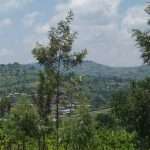Growing up as an English liberal, taught at school to look for rational and scientific explanations, there are situations which are difficult, conversations that are awkward.
‘There are many sorcerers’.
It was not a comment I had anticipated. ‘But I have visited your country three times and I have never heard sorcerers mentioned. No-one has ever talked about witch doctors or magic in the places I have visited’.
‘No, they would be embarrassed to tell you about such things. They would not want you to think they believed in them’.
‘But the sorcerers have no power, why do the people fear them?’
‘The sorcerers have much power. We must fight against them.
‘We must take their power by telling people they have no power’.
He looked unconvinced; our world views were so far apart. Anyway, what right had an English liberal to tell someone who had lived through genocide how to think?
In ‘Africa: Altered States, Ordinary Miracles’ Richard Dowden endeavours to explain the continent to readers who have grown up used to European rationalism:
Africa never went through the philosophical and social revolution of Europe in the eighteenth century which sought scientific explanations for the world and put science and spirit in separate boxes. The modern Western view of the world distinguishes between the physical world and the spiritual world, some would say ‘real’ and ‘unreal’. This view is actually quite new in Europe – only about 250 years old. Before that, most Europeans would have thought – and acted much like Africans when it came to religion. Europe has lost that sense of the numinous, the spiritual. Africa has not. Life remains one in Africa and life includes the divine and the mystical as well as the objective physical world. In Africa body and soul are one and the soul lives on.
While Christianity teaches that only humans have souls, African religions hold that all objects, animate or inanimate, can be moved by spirits. Africa senses spirits in animals, trees and rocks as well as people. So the river and the spirit of the river are one and the same. The spirit allows the substance to change, the person to become something else. A friend in Port Harcourt in Nigeria told me that one day in 2001 a noisy crowd gathered under a tree and he went to investigate. There he found a man being roughed up by the crowd. When he asked what the man had done, they claimed he had been a bird sitting in the tree and when a young boy threw a stone at it, it fell down. The bird hit the ground and turned into man. The crowd wanted to kill this witch, this skin changer. A policeman appeared and my friend assumed the man would be saved. In a way he was; the policeman stopped the crowd killing the man and arrested him instead. When my friend asked what he was being charged with, the policeman said, ‘Changing his skin.’
The challenge remains to be able to explain Europe to an African friend.
